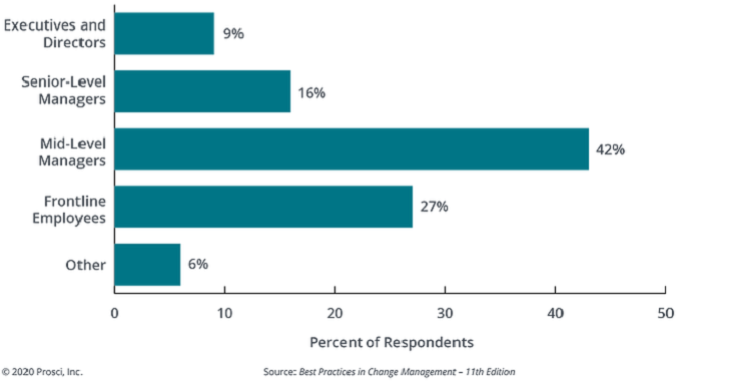Organisational Strength of Resistance to Change
Introduction
"...resistance is a top obstacle to successful change in every Prosci research study..."
Tim Creasey, 2022a
Be careful to not underestimate resistance, ie by not listening, or ignore it, as this will make the problem worse.
For the human brain, resistance is a physiological and psychological reaction. To act in a new way requires more brain activity and the brain prefers to revert back to familiar ways.
"...human beings can adapt their behaviour, but it is a difficult and painful process - even for the brain itself..."
Prosci, 2022b
(for more detail, see elsewhere in the Knowledge Base)
NB Change and resistance to change are individual phenomena, ie each individual will react differently and their reaction will depend on factors such as personal history, current events in their life and past experiences with change, etc.
Organisational Resistance
The most resistant group in an organisation to change are middle level managers, followed by front-line employees (see below for graph).

Sources of resistance include:
- employees who are highly invested in the current way of doing work
- people who created the current way of doing work that will be changed
- employees who expect more work (but no extra renumeration) as a result of the change
- those who advocated an alternative for what was ultimately selected
- people who are very successful and rewarded by the current way of doing things
NB
"...resistance to change is ultimately an individual phenomena. Although research and analysis can identify general root causes for resistance, we must address resistance at the individual level. The best way to identify the root cause of resistance is through a personal conversation between a resistant employee and his/her people manager..."
Prosci, 2022b
